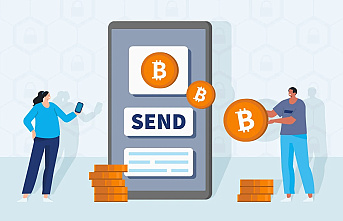The vision of Web3 is as a sort of digital world unto itself in which its users fully own their activities online. If this vision is realized, it will transform most, if not all, aspects of life, education among them.
The more entrepreneurial minded of education experts predict Web3 will create an ecosystem in which students buy direct access to classes that interest them without needing to enroll in college. Students can track their progress on a single credential chain that grows ever-longer as the student progresses through her education. Teachers, in this new ecosystem, will earn direct profits from their work. It also allows those outside the realm of education to invest in tokens that allow them to participate in interest-focused learning groups.
This decentralization of the field of education transforms self-contained educational institutions into open marketplaces. This paradigm shift will invariably influence how education gets funded in the future; the only question is how?
Are these forward-thinkers envisioning a way to improve the educational system? Or, are they simply seeking ways to profit from that system? The truth, most likely, is that both types exist.
When education is decentralized, educational funding must necessarily be so too. Questions about who controls education: the government, educators, parents or the community, have been around long before the vision of Web3. When this vision is realized, however, and more alternatives to traditional models for education exist, these questions will only push more to the fore.
By “unbundling” university classes, for example, from degree programs or, even, the universities themselves, educational funding will invariably and necessarily flow in new directions. Teachers will market their classes to students directly. Those classes may still be curated by respected institutions of higher education, but the IP contained in those classes will belong not to the institutions but to the teachers.
Learning DAOs will allow communities to share a pool of cryptocurrency, including the decision-making as to how that currency is applied. In this way, they supplant the institutional model with one resembling a co-op.
These DAOs will stay financially sustainable by selling NFTs that give their owners access to courses at some future time and offer other DAOs various educational services. A portion of these NFTs will serve as a sort of scholarships given to underrepresented groups in the crypto universe.
Metaverse tech will also play a role in educational funding by allowing for the creation of a so-called “Eduverse” in which teachers will advance their training by digitally teleporting to edtech hubs. They can use marketplaces to exchange lesson plans for tokens, pursue new jobs at digital career centers and socialize with other educators in virtual lounges. Whether the economic shift this spurs will benefit students and teachers or the big corporations already investigating how best to claim their slice of this nouveau pie remains to be seen.
Perhaps the most pressing question this Web3-fueled future of education poses is whether such a world still has a place for public education supported by tax dollars. One potential proactive solution would be for these schools to raise their own funds through the crypto-economy and decentralized finance. Of course, this would transform schools into businesses, which opens a whole other can of worms.











